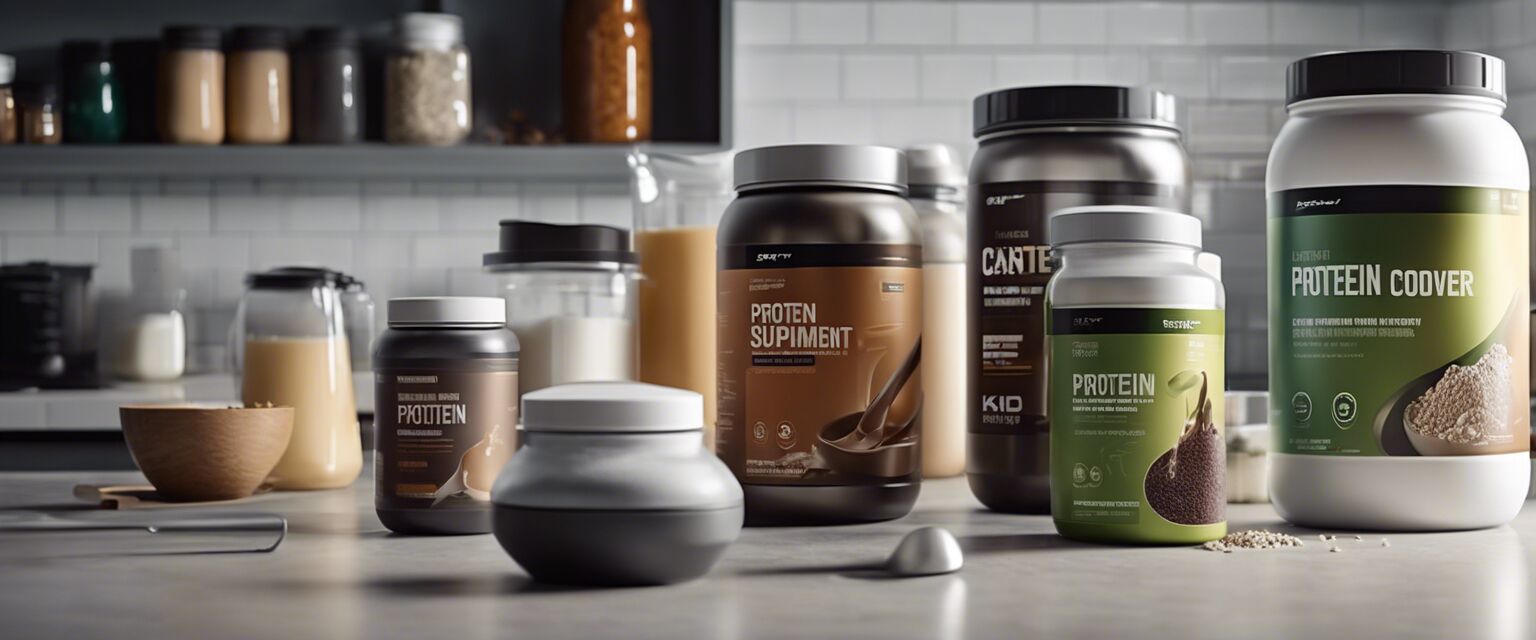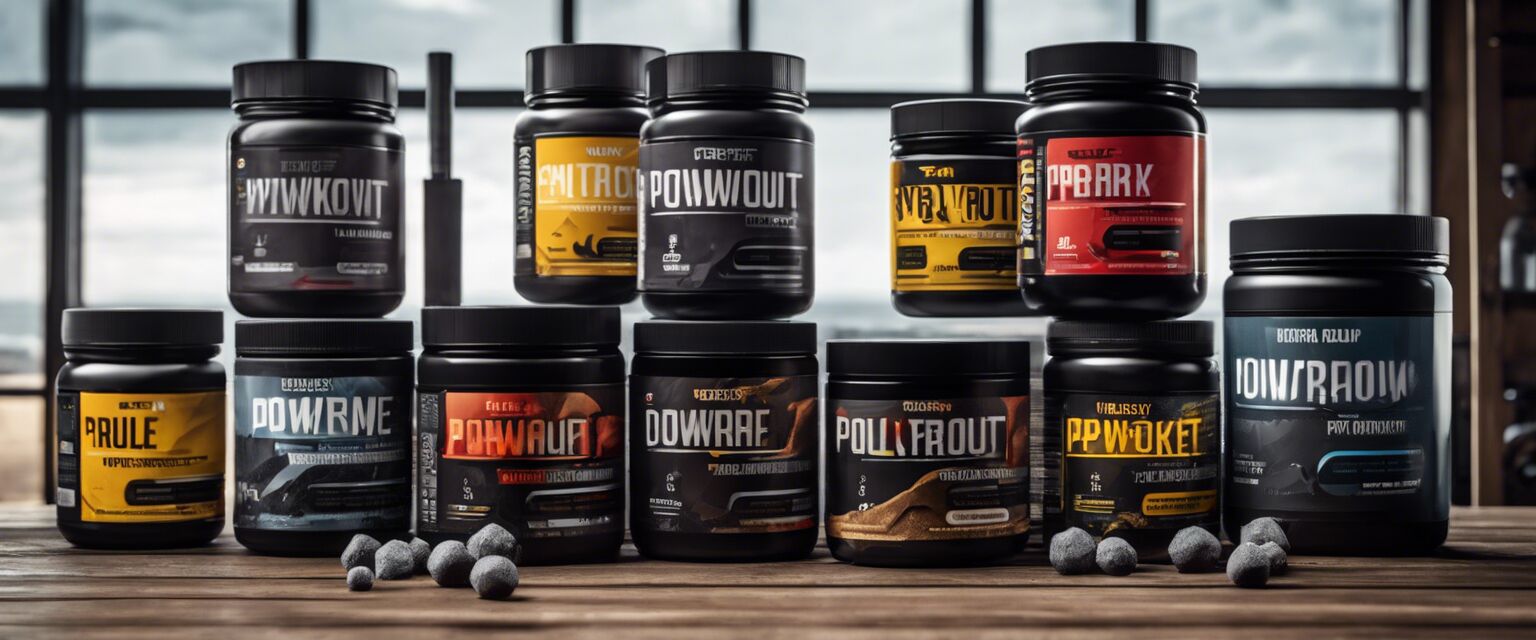
Protein Supplements
Key Takeaways
- Protein supplements are popular among fitness enthusiasts and individuals seeking to enhance their dietary intake.
- There are various types of protein supplements, including whey, casein, soy, and plant-based options.
- Choosing the right protein supplement depends on individual dietary needs, fitness goals, and any dietary restrictions.
- Protein supplements can be consumed in various forms, including shakes, bars, and powders.
- Always consult with a healthcare provider before starting any new supplement regimen.
Protein supplements have gained immense popularity in the health and fitness community. They provide a convenient way to increase protein intake, essential for muscle repair, growth, and overall health. In this comprehensive guide, we will explore different types of protein supplements available in the market, their benefits, usage, and what to consider when choosing the right one for your needs.
What are protein supplements?
Protein supplements are products designed to help individuals increase their protein intake. They come in various forms, including powders, shakes, and bars, and can be derived from animal sources like whey and casein or plant-based sources like soy and pea.
Types of protein supplements
| Type | Description | Best for |
|---|---|---|
| Whey Protein | Fast-digesting protein derived from milk. | Post-workout recovery. |
| Casein Protein | Slow-digesting protein also from milk. | Nighttime recovery. |
| Soy Protein | Plant-based protein with a complete amino acid profile. | Vegetarians and vegans. |
| Pea Protein | Plant-based protein that is hypoallergenic. | Allergy-sensitive individuals. |
| Hemp Protein | Plant-based protein rich in omega-3 fatty acids. | Health-conscious individuals. |
Benefits of protein supplements
- Muscle growth: Provides essential amino acids needed for muscle repair and growth.
- Convenience: Easy to consume on-the-go, making it simpler to meet daily protein needs.
- Weight management: Can help in feeling fuller longer, aiding in appetite control.
- Variety: Available in multiple flavors and forms to suit individual preferences.
How to use protein supplements
When incorporating protein supplements into your diet, consider the following:
- Determine your protein needs based on your fitness goals and dietary intake.
- Choose the right type of protein supplement that aligns with your dietary preferences.
- Mix protein powder with water, milk, or a smoothie for a nutritious shake.
- Incorporate protein bars as a convenient snack option.
- Monitor your overall protein intake to avoid exceeding recommended levels.
Choosing the right protein supplement
When selecting a protein supplement, consider the following factors:
- Dietary restrictions: Check for allergens and choose accordingly (e.g., dairy-free, gluten-free).
- Protein source: Decide between animal-based or plant-based proteins based on your dietary preferences.
- Flavor and texture: Opt for flavors and textures you enjoy to ensure consistency in your routine.
- Brand reputation: Look for brands with positive reviews and transparent ingredient sourcing.
Tips for beginners
- Start with a small serving to assess tolerance.
- Combine protein supplements with whole foods for a balanced diet.
- Stay hydrated, especially when consuming protein powders.
- Track your protein intake to ensure you're meeting your goals.
Protein supplements and your diet
Integrating protein supplements into your diet can complement your overall nutrition strategy. However, itâs essential to maintain a balanced diet that includes whole foods, such as meats, dairy, legumes, nuts, and vegetables. Protein supplements should serve as an addition rather than a replacement for whole food sources.

Common misconceptions about protein supplements
- Myth 1: Protein supplements are only for bodybuilders. Fact: They can benefit anyone looking to increase their protein intake.
- Myth 2: More protein equals more muscle. Fact: There is a limit to how much protein the body can utilize for muscle building.
- Myth 3: All protein supplements are the same. Fact: Different types of protein serve different purposes and have varying digestibility.
Potential side effects of protein supplements
While protein supplements are generally safe for most people, some individuals may experience:
- Digestive issues, such as bloating or gas, especially with lactose-containing proteins.
- Kidney strain for those with pre-existing kidney conditions when consuming excessive protein.
- Allergic reactions to certain protein sources, like whey or soy.
Conclusion
Protein supplements can be a valuable addition to your diet, providing convenience and support for your fitness goals. However, itâs essential to choose the right type of protein based on your needs and to maintain a balanced diet. Always consult with a healthcare provider before starting any new supplement regimen.
Pros
- Convenient source of protein.
- Variety of options available.
- Can aid in recovery and muscle growth.
Cons
- May cause digestive discomfort.
- Can be expensive.
- Not a substitute for whole food sources.
For more information about dietary supplements, check our other categories: Herbal Supplements, Immune Support, Pre-Workout Supplements, Recovery Supplements, Vitamins and Minerals.









